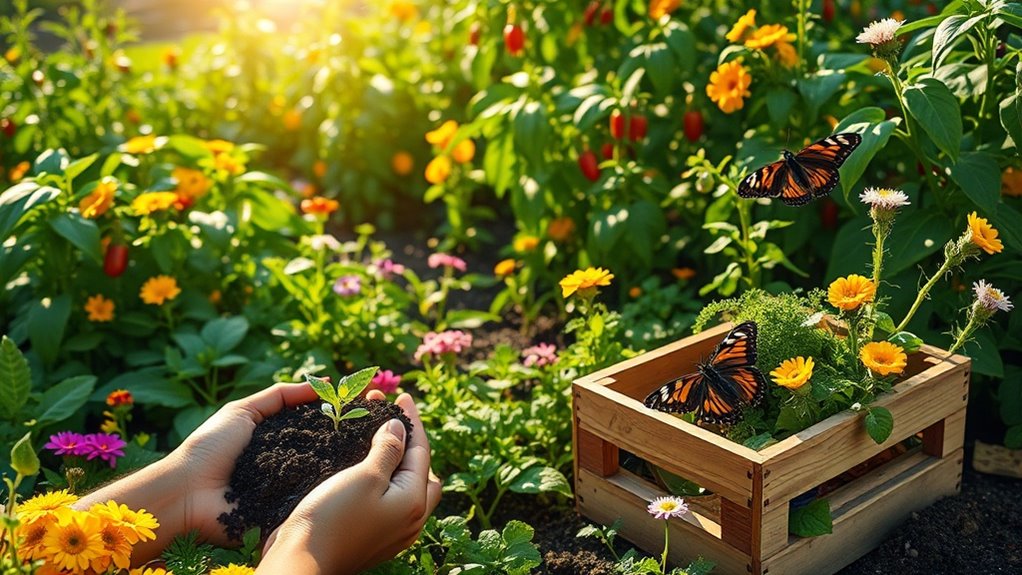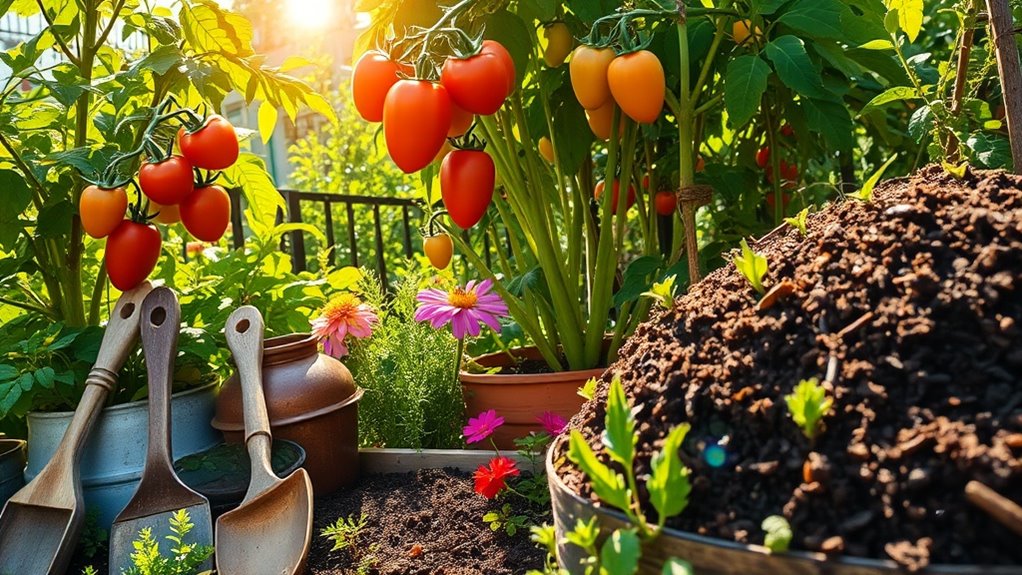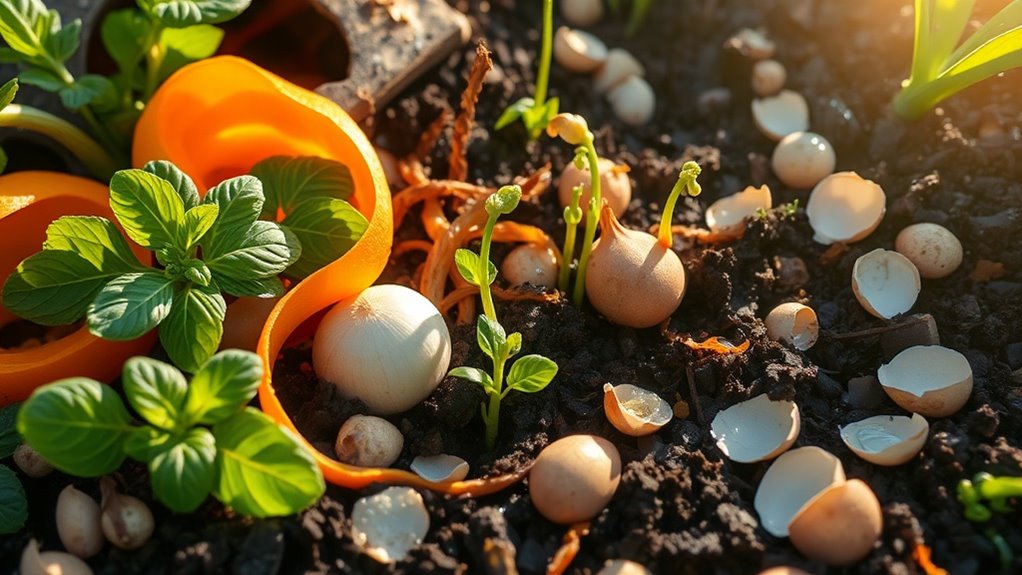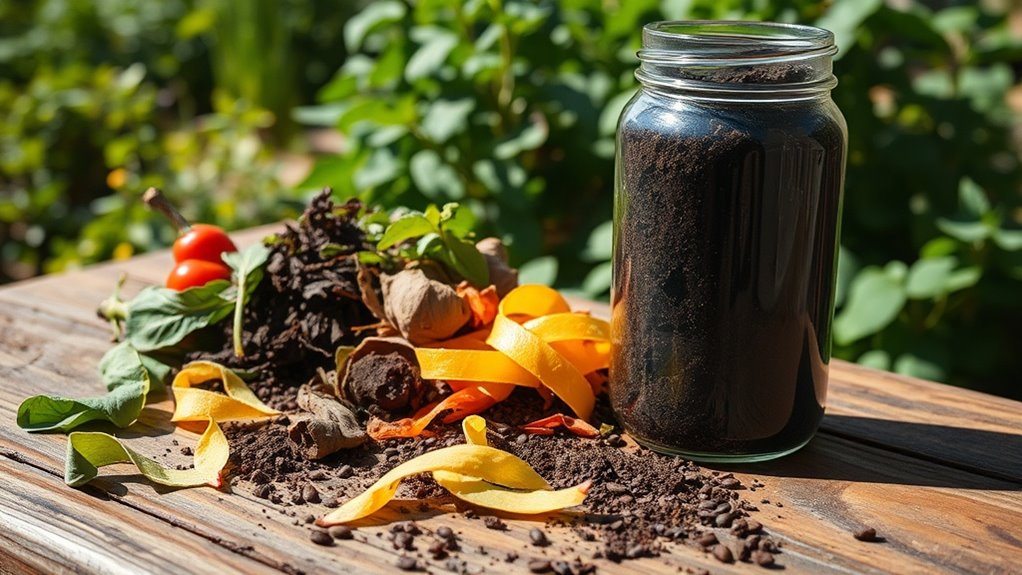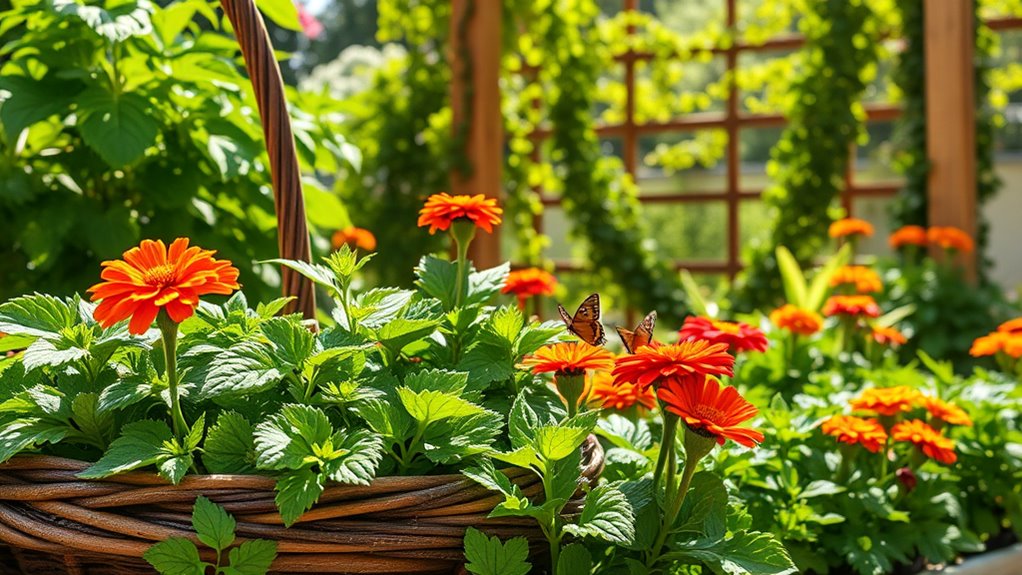Why Organic Gardening Is Easier Than You Think
Organic gardening might seem daunting, but it’s often simpler than conventional methods. By harnessing natural processes, you can create a robust garden ecosystem that thrives on minimal intervention. Understanding soil health is critical, as it forms the foundation for successful plant growth. You’ll soon see how straightforward practices can minimize reliance on chemicals in your garden. If you’re ready to explore these easy, sustainable techniques, an abundance of benefits awaits.
Understanding Organic Gardening Principles
While exploring organic gardening principles, you’ll discover that the foundation lies in promoting a sustainable ecosystem. This method enhances biodiversity, improves soil structure, and fosters natural pest control. You’ll reap numerous organic gardening benefits, including healthier plants, improved nutritional quality, and reduced environmental impact. Additionally, soil health plays a critical role in ensuring robust plant growth and resilience against pests and diseases.
Benefits of Healthy Soil
Healthy soil plays a vital role in the success of your organic garden, directly influencing plant vitality and overall garden health.
Rich in organic matter, it enhances water retention and aeration while promoting beneficial microbial activity. This biological ecosystem improves nutrient availability, allowing plants to grow stronger and more resilient. Additionally, incorporating organic matter into your soil can significantly boost nutrient availability and moisture retention.
Ultimately, healthy soil fosters biodiversity, reducing disease susceptibility and enhancing your garden’s ecological balance.
Natural Pest Control Methods
When managing an organic garden, employing natural pest control methods not only protects your plants but also maintains ecological balance. Techniques like companion planting, beneficial insects, and natural repellents can significantly reduce pest populations. Understanding these methods allows you to create a thriving ecosystem, enhancing plant health and promoting diverse strategies for effective pest control.
| Method | Benefits | Example |
|---|---|---|
| Companion Planting | Distracts pests | Marigolds with tomatoes |
| Beneficial Insects | Naturally curtail pest population | Ladybugs for aphid control |
| Natural Repellents | Deters pests with scents | Neem oil, garlic spray |
Simple Practices for Successful Growth
Natural pest control methods lay the groundwork for a flourishing organic garden, but successful growth also hinges on adopting simple, effective practices.
Ensure soil health with regular compost addition, optimize water usage through drip irrigation, and practice crop rotation to prevent nutrient depletion.
Additionally, incorporating companion planting can enhance growth and deter pests, creating a balanced ecosystem that promotes thriving plants. This practice not only boosts garden yield but also contributes to a thriving garden ecosystem.
Stay attentive and adjust as necessary.
Cost-Effective Techniques for Beginners
For beginners, implementing cost-effective techniques can make all the difference in launching a successful organic garden.
Start by using kitchen scraps, like fruit peels or coffee grounds, as natural fertilizers. Create compost bins to recycle waste, reducing the need for store-bought nutrients. Additionally, plant in-season seeds to minimize costs and increase yield. These practices lead to healthy plants and a thriving garden. Furthermore, understanding what materials to compost can significantly enhance your composting efforts, ensuring you have the right nutrients for your garden.
Building a Sustainable Garden Environment
Creating a sustainable garden environment enhances not only the health of your plants but also the overall ecosystem. Focus on integrating native plants, utilizing compost, and practicing crop rotation. Your garden thrives when it supports biodiversity while conserving resources.
| Element | Benefits |
|---|---|
| Native Plants | Attract beneficial insects |
| Compost | Enriches soil with nutrients |
| Crop Rotation | Reduces pest buildup |
| Mulching | Conserves moisture |
| Companion Planting | Enhances growth and pest control |

